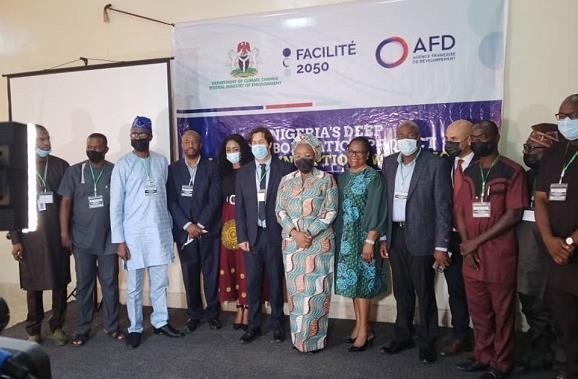The Federal Government on Friday, December 17, 2021 inaugurated a Deep Decarbonisation Project (DDP) that would effectively address environmental challenges in the country.

The Minister of State for Environment, Chief Sharon Ikeazor, who inaugurated the project in Abuja, said that the project was recognised as imperative in the fight against climate change.
Ikeazor explained that the DDP was also a national research and capacity building project for the implementation of a Deep Decarbonisation Pathway Programme (DDPP) in the country.
According to her, DDP is a collaboration project between the ministry and the Agency Française de Development (AFD) with International Relation and Sustainable Development Institute (IDDRI) as the Programme Coordinator.
“The purpose of the inauguration is to present the DDP project to the larger community of stakeholders to begin a focused conversation on the scenarios and modelling options.
“The modelling options that can help Nigeria achieve her stated long term climate objectives including the goal of net zero emission by 2060.
“The Nigeria DDP is therefore, a very important component in our effort to navigate Nigeria and the global world over the harsh and unpleasant risks of climate change.
“Indeed, as many here will attest, we are already being confronted with the dangerous consequences of extreme weather in recent times with huge financial stress,” she said.
According to her, the DDP is deigned to generate context specific scenarios and long-term modelling that will offer substantial evidence to support the government’s long term emission reduction strategies and our climate action.
“The Federal Government has made several climate change interventions intended to mitigate climate change and increase resilience to avert the excruciating consequences of climate change.
“Some of the interventions we have made to reverse the ugly trend of climate change in Nigeria include, signing into law the Climate Change Bill passed by the National Assembly.
“The Law provides an overarching legal framework to articulate a long-term climate plan for Nigeria to achieve a net zero carbon emission target.
“Also the recent submission of its revised and robust Nationally Determined Contributions that articulate climate actions until 2030, among others,’’ she said.
Ikeazor, however, encouraged all the stakeholders in the space of climate change to support the DDP project, to enable us address environmental challenges effectively.
The National Project Leader of the DDP, Prof. Chukwumerije Okereke, said that the project was desired to build the capacity of Nigeria academics.
Okereke said that the academics would be able to design high quality and robust climate change modules that can guide international climate policy.
He stressed that part of the reasons implementation of projects had always been a challenge was because the country would always use international experts to design policies.
According to him, there is a chance that the foreigners will not understand what is really needed in the country that can create a gap between what the document says and what need to be done.
“So, this project, by having Nigerian academics working in collaboration with the ministry through the Department of Climate Change, we hope that we will be able to produce long term strategies that will be relevant for implementation.”
Okereke said that the project would last for three years, adding that it would create job opportunities for the country.
